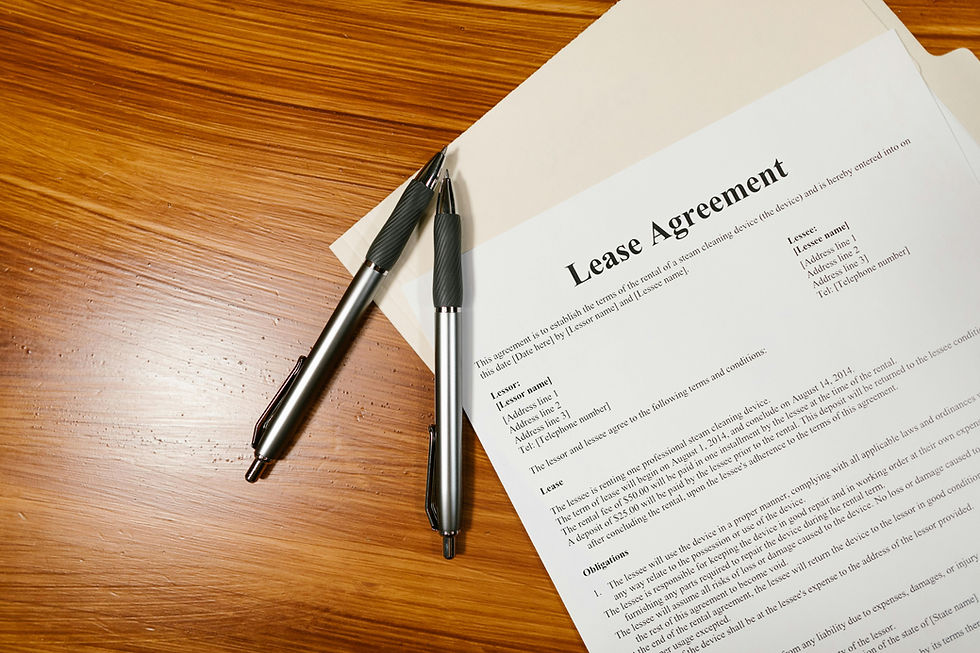Five Qualifications to Look for in Real Estate Brokerage and Advisory Services
- eweinblatt3
- Jul 13, 2025
- 3 min read

Choosing the right real estate brokerage or advisory firm is a critical decision—whether you're leasing office space, acquiring investment property, or navigating complex transactions. A good broker does more than open doors—they bring expertise, negotiation savvy, and strategic foresight to help protect your interests and maximize value.
Here are five essential qualifications to look for when hiring a real estate brokerage or advisory service:
1. Proven Track Record and Market Expertise
One of the first things you should evaluate is the firm’s track record of success in your target market. Experience isn't just about how long they've been in business—it's about their familiarity with the specific property type, geographic market, and deal size that matches your needs.
What to Look For:
Case studies or past transactions similar to your objectives.
Testimonials or client references.
Deep knowledge of submarkets, local trends, vacancy rates, and absorption rates.
Experience across different cycles (e.g., bullish vs. downturn markets).
A brokerage that has successfully closed deals in your niche is better positioned to anticipate risks, uncover opportunities, and guide you through local zoning or regulatory hurdles.
2. Strong Analytical and Financial Acumen
Real estate decisions often hinge on financial modeling, ROI analysis, lease structuring, and risk forecasting. A qualified real estate advisor must bring a numbers-driven approach to the table—not just gut feeling or flashy brochures.
Why It Matters:
Whether you’re comparing lease vs. buy options or evaluating cap rates, the math has to be sound.
Advisors should be able to present cash flow projections, IRR (Internal Rate of Return) analyses, and cost-benefit comparisons that are tailored to your investment goals.
Questions to Ask:
Do they have in-house analysts or rely on third-party consultants?
Can they articulate the financial rationale behind their recommendations?
Are their market reports and research data proprietary or up-to-date?
3. Professional Credentials and Licensing
Make sure any firm or broker you work with is properly licensed and has relevant professional designations. Credentials signal a commitment to ethical practices, industry education, and ongoing development.
Key Credentials to Look For:
Licensed Real Estate Broker in your state.
CCIM (Certified Commercial Investment Member) – ideal for investment-focused transactions.
SIOR (Society of Industrial and Office Realtors) – denotes expertise in office and industrial markets.
LEED Accreditation – helpful when sustainability is a priority in your site selection.
These designations require coursework, exams, and experience, so they can help you distinguish true professionals from generalists or part-timers.
4. Strategic Advisory and Negotiation Capabilities
The most valuable brokers don’t just “show space”—they strategize, negotiate, and advocate on your behalf.
A qualified advisor should:
Understand your business model, growth plans, and financial constraints.
Align their real estate strategy with your long-term goals (not just short-term gains).
Bring creative solutions to lease terms, tenant improvements, build-outs, or exit clauses.
Leverage market data to negotiate from a position of strength.
Ask about deals they've restructured, concessions they've secured, or incentives they've negotiated. A skilled negotiator can often add six-figure value to a lease or acquisition.
5. Integrity, Transparency, and Alignment of Interests
Finally, don’t overlook character and alignment. The best advisors are not just competent—they're trustworthy.
Red Flags to Avoid:
Vague answers to fee structures.
Hidden affiliations with landlords or developers.
Overpromising timelines or outcomes.
Instead, seek advisors who:
Disclose all compensation sources clearly.
Avoid dual agency conflicts or explain them transparently.
Put your interests first—even if it means recommending you not do a deal.
Look for a fiduciary mindset: someone who’s accountable to you and who builds long-term relationships, not just short-term wins.
Bonus Tip: Ask for a Strategic Process Outline
A great broker or advisory firm should be able to walk you through their process—from initial needs assessment to post-transaction support. Look for a clearly defined methodology with timelines, deliverables, and checkpoints.
A well-structured process may include:
Market analysis and space planning.
Shortlisting of options with financial comparison.
Site tours and feedback.
Offer structuring and lease/purchase negotiations.
Legal and technical due diligence coordination.
Post-close assistance (e.g., move-in, subleasing strategy, ongoing advisory).
Conclusion of Real Estate Brokerage and Advisory Services
Choosing the right real estate brokerage and advisory partner isn’t just about flashy branding or who’s got the biggest listings. It’s about aligning with a team that brings the right mix of experience, financial insight, credentials, negotiation skill, and integrity.
By focusing on these five qualifications, you’ll be far better equipped to make informed decisions, avoid costly mistakes, and secure the best possible outcomes in your real estate journey.


